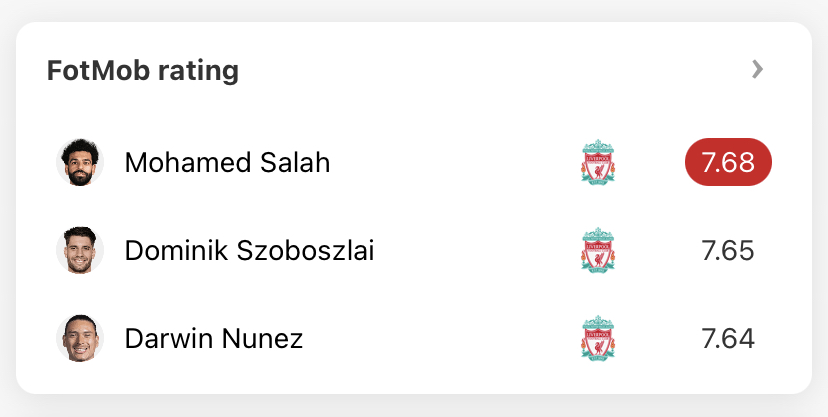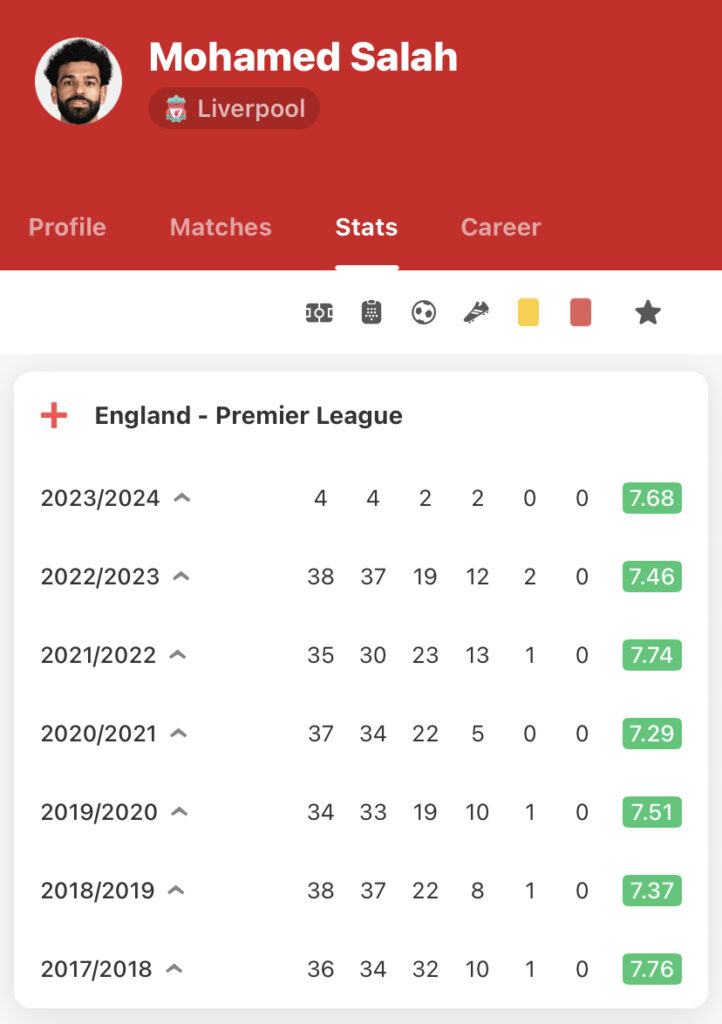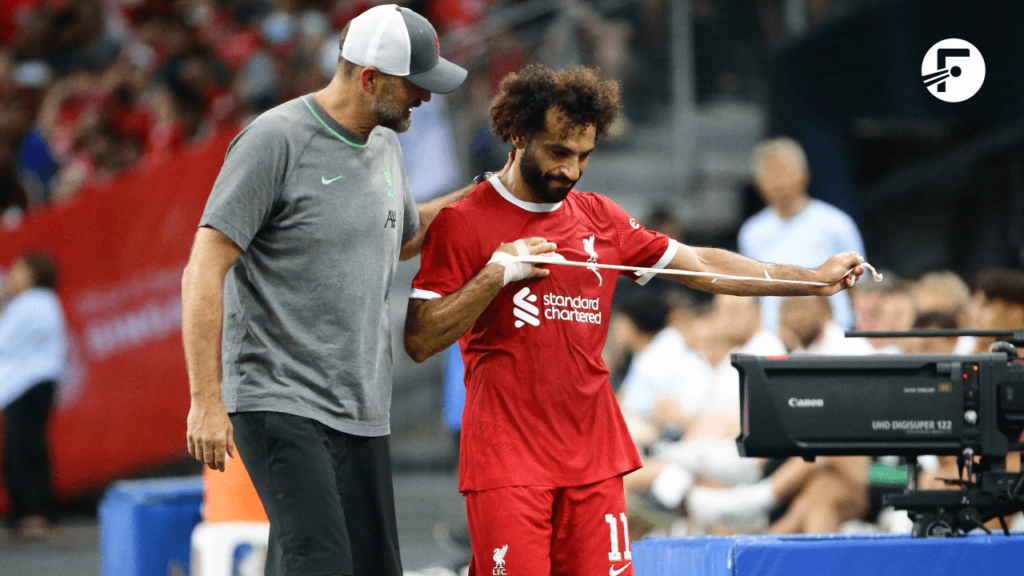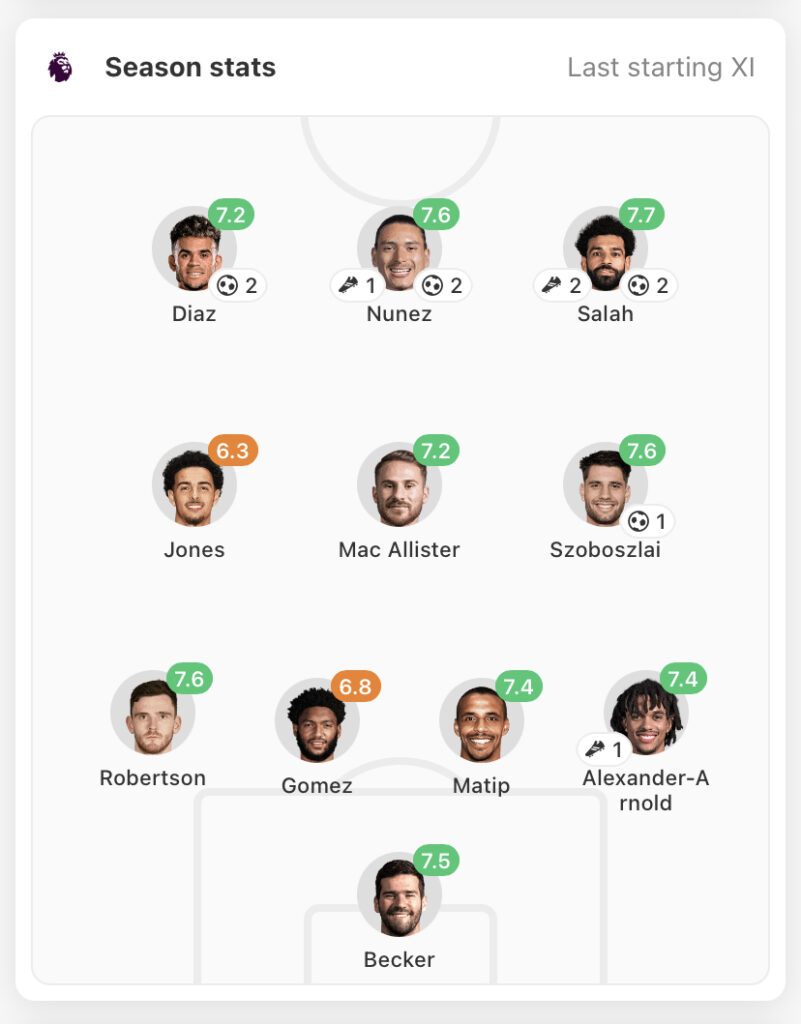Whatever the figures on the table, Liverpool were prepared to hold firm and keep Mohamed Salah beyond the 10pm UK deadline set by the Saudi Pro League. A verbal offer worth up to £150 million was swiftly rejected by Mike Gordon, president of the club’s owners Fenway Sports Group, a week previous and suggestions of a world-record bid were given similarly short shrift.
The timing of Al-Ittihad’s push to sign Salah, which dominated the final hours of the Premier League’s transfer window and kept Sky Sports and the tabloid press ticking over in the six days to follow, was questionable, particularly given accusations of sportwashing amid a summer of heavy spending from the Middle East.
But that, in Liverpool’s eyes, was besides the point: put simply, Salah was and is irreplaceable, with no sum of money worth losing him on deadline day with no chance of signing an adequate successor. Instead, despite the possibility of raking in £200 million for a 31-year-old with two years left on his contract, the club resolved it would be worth more to keep him at Anfield.

This is, after all, a player who has scored 188 times in just 306 appearances since his £43.9 million move from AS Roma in 2017, breaking countless records on the way to fifth spot among the club’s all-time leading goalscorers.
Not only that, but Salah is a player whose creativity is becoming a more crucial aspect of Liverpool’s play. In the first four games of the Premier League season, he has already created four big chances – at least three more than any of his team-mates – while he tops Trent Alexander-Arnold and Dominik Szoboszlai (both 0.5) in terms of expected assists with 0.6.
In each of the past three seasons he has struck 30 or more goals while in each of the past two he has assisted 15 or more for team-mates. Already this campaign, Salah has two goals and two assists in four appearances, leading the Liverpool squad again.

Losing him at any point in the window would have been a seismic blow to Liverpool’s confidence and structure; a player they have relied upon for so long and who has grown into a leader among Jürgen Klopp’s squad, even if he has rarely been handed the captain’s armband and was overlooked in favour of Alexander-Arnold when it came to the decision over Virgil van Dijk’s vice-captain.
Losing Salah on deadline day would have been fatal; losing him after the English deadline due to the overhanging Saudi Pro League transfer window would have been somehow even worse.
Beyond the impact on the squad, any sale of Salah would come at a significant off-field risk, too, not least due to the prize money his goals have helped accrue – Liverpool’s run to the Champions League final in 2022, for example, brought in £106 million alone. Moreover, his marketability as one of the world’s best players and one of the most famous Arabic sportsmen is as beneficial to those on Merseyside as it would be those in Jeddah.
So FSG certainly deserve credit for not bowing to the financial pressure of a club backed by the Saudi royal family, and with both the player and his usually vocal agent keeping quiet amid speculation.
There is a growing acceptance that Salah will eventually be sold, though, despite the Egyptian himself expressing a desire to remain at Anfield for the rest of his career prior to signing a new three-year contract in 2022.
“If you ask me, I would love to stay until the last day of my football career,” he told Sky Sports during negotiations. The revamp of the Saudi Pro League, and subsequent, big-money moves from the likes of Cristiano Ronaldo, Karim Benzema, Neymar, Riyad Mahrez and former team-mates Sadio Mané, Roberto Firmino, Fabinho and Jordan Henderson, may have changed things since then.
At the time, there were few options open to Salah, particularly as he claimed he couldn’t see himself “ever playing against Liverpool,” with the pool likely limited to Paris Saint-Germain and Real Madrid. Now, any of those sides owned by the Public Investment Fund – Al-Ittihad, Al-Ahli, Al-Nassr and Al Hilal – represent feasible destinations for a player who would arrive as the biggest of all draws.
There is also a growing feeling that next summer will be the right time for Liverpool to allow their legendary No. 11 to move on, particularly if similar offers are presented to them. By the end of the current campaign, Salah will be 32 and with 12 months remaining on a club-record contract worth £350,000 a week. A decision will be required over whether to present him with a new and likely significantly improved deal, sell or allow the player to stay for a final season before departing on a free transfer. At that point, it may no longer make sense for FSG to retain their asset regardless of the financial incentives tied to keeping him.

In a way, then, in rejecting Al-Ittihad, Liverpool have bought time to plot a succession plan. They cannot leave themselves in the position with Salah that they found themselves in when Henderson and Fabinho departed in the summer just gone, when they were forced into reactive, rather than proactive, signings. Whether Salah is to leave or not, recruitment staff should be tasked with identifying his replacement long before he moves on.
That may be easier said than done, with the likes of Jarrod Bowen (West Ham), Michael Olise (Crystal Palace), Johan Bakayoko (PSV Eindhoven) and Moussa Diaby (Aston Villa) floated as early possibilities – along with, of course, Kylian Mbappe. There are certainly options out there, with those mentioned all convincing cases along with the likes of Brentford’s Bryan Mbeumo and Real Sociedad’s Takefusa Kubo, but the reality is that there are few, if any, who directly measure up to Salah. There has long been a sense that Liverpool would prefer to nurture his successor in house, with Kaide Gordon before his 19-month injury layoff and Ben Doak now breaking through, but would either be ready to make the step up by 2024?
Napoli’s Khvicha Kvaratskhelia may be the prime candidate, but even he is a more natural left winger, a position for which Liverpool already boast Luis Díaz, Darwin Núñez, Diogo Jota and Cody Gakpo as options.
The presence of those four could, however, serve as evidence of the succession plan already in effect – or, more appropriately, another solution to filling the void if Salah were to move on.
Few players are capable of producing in front of goal as consistently as Salah has for Liverpool, and therefore the best route may be to replace him in the aggregate. If there are no players on the market who can score 30 or more goals every season, Klopp will for example need two who can score 20 or more or three who can score 15 or more, every season, to adapt, evolve and improve.

In Núñez, Gakpo, Jota and Díaz, that may already be the case, while the development of Dominik Szoboszlai in the right-sided midfield role could provide another fix. But a player like Mbeumo, Bakayoko or, ideally, Kvaratskhelia would still be required to cover the losses if Salah departed.
Fortunately, Liverpool’s ferocity in talks with Al-Ittihad has ensured the luxury of time to put the pieces in place – as whether in January, next summer or even in 2025, eventually Salah will need to be replaced.